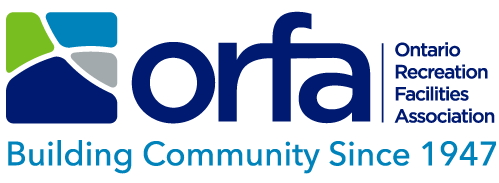- ORFA Home
- The Recreation Facility Profession
- ORFA News and Alerts
- Prepare Employees for the Upcoming Solar Eclipse
ORFA ALERT
Prepare Employees for the Upcoming Solar Eclipse
February 16, 2024
A Total Solar Eclipse will be taking place on Monday, April 8th, 2024, visible across North America. The path of the eclipse will pass through multiple provinces, including Ontario which is expected to start at 2:04 PM and continue until 4:31 PM. However, it is recommended to add buffer time before and after in planning for added safety. Full coverage of the sun by the moon (totality) will pass over at approximately at 3:18 PM and end at 3:19 PM.
OHSA Duties of Supervisor:
27 (1) A supervisor shall ensure that a worker, (b) uses or wears the equipment, protective devices or clothing that the worker’s employer requires to be used or worn. (2) Without limiting the duty imposed by subsection (1), a supervisor shall, (a) advise a worker of the existence of any potential or actual danger to the health or safety of the worker of which the supervisor is aware;
(b) where so prescribed, provide a worker with written instructions as to the measures and procedures to be taken for protection of the worker; and
(c) take every precaution reasonable in the circumstances for the protection of a worker. R.S.O. 1990, c. O.1, s. 27.
Given these responsibilities, supervisory staff must take appropriate action. Staff should be informed that looking at the sun without special protection, may cause damage to their retina from radiation (solar retinopathy). If a worker looks at the sun during an eclipse, they will not feel pain and should be aware that their eyes’ natural protective mechanisms will not adequately protect them (i.e., blinking reflex). Precautions should be required for the entire duration of the eclipse (2:04 PM – 4:31 PM).
SAMPLE Safety Precautions and Considerations:
- Do not look directly at the sun! Do not look indirectly at the sun using a window or mirror reflection!
- Where possible, schedule tasks indoors during the eclipse, to reduce the likelihood of looking at the sun.
- If driving, continue as normal and avoid looking at the sun – depending on the sun position, use hats/shades/visors that don’t allow any visible light to pass through. Don’t drive wearing eclipse glasses. Have headlights turned ON.
- During a Solar Eclipse, the environment will darken like dawn or dusk – prepare for distracted drivers/people! Where applicable, ensure adequate lighting and wear high visibility clothing appropriate for low light conditions.
- Regular sunglasses are not nearly adequate to protect your eyes while looking directly at the sun. Do not use a camera, a telescope, binoculars, translucent shades/visors, or any other optical device to look at the sun. These devices are not safe for eclipse viewing, and the concentrated solar ray can cause retinal burns.
- Special glasses can be purchased for safe eclipse viewing, that are validated and tested by a properly accredited laboratory to meet the requirements of ISO 12312-2:2015; however, there’s a significant number of counterfeit glasses being sold as “ISO 12312-2:2015 compliant or certified”. If a worker chooses to view the eclipse in their off-hours, they should be encouraged to ensure the chosen glasses are authentic and purchased from a reputable vendor.
